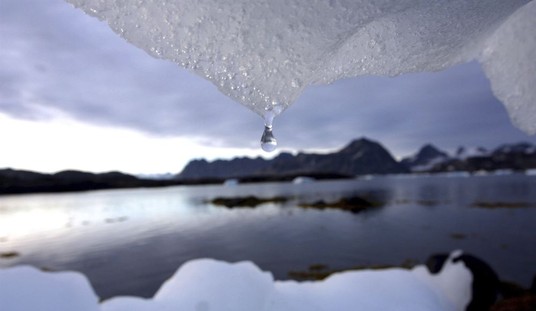Almost two months ago, I wondered whether Russia’s next move after Ukraine would aim at the Baltic states rather than Moldova and its restive Transnistria region, where most other analysts presumed Vladimir Putin’s gaze would shift. Wonder no longer. Latvian defense minister Raimonds Vejonis tells Reuters that the substantial Russian-speaking minority has begun to get restive too, thanks to “professional provocateurs” from you-know-where:
Latvia’s defence minister said on Friday Russia was trying to stir unrest in the Baltic state by using “specially-trained, professional provocateurs” in the wake of its intervention in Ukraine. …
“There are risks that Russia might try to destabilise the situation in the region,” Raimonds Vejonis, Latvia’s defence minister, told Reuters in an interview.
“We see it very clearly in Ukraine’s case, where they have acted and are still trying to escalate the situation in different ways,” the minister added.
“They are trying to increase negative sentiment in society through certain specially-trained, professional provocateurs.”
Just over a quarter of Latvia’s population is ethnic Russian, about the same percentage as Estonia. Lithuania has a much smaller Russian minority, but also does not share a border with Russia — although they do with Belarus, a reliable satellite of Moscow. With Putin declaring himself the protector of all Russian speakers in the Eurasian sphere, all he needs to intervene would be a pretext, just as he did in Crimea and is preparing right now in eastern Ukraine.
Putin also appears to be moving troops in position to act in Latvia:
“There are no direct military threats to Latvia and the Baltic region, but there is increased activity of Russia’s Armed Forces near the border,” Vejonis said.
The US has just moved troops into Latvia yesterday, part of NATO’s effort to bolster confidence along what has become its eastern front:
Latvia on Friday welcomed American troops on its soil, part of a US force of 600 sent to the region to reassure the Baltic states amid concern over Russia’s actions in Ukraine.
“Today is a special day because this morning I met the heads of the armed forces at the Adazi military base and greeted the US military unit that arrived this morning for military training,” Latvian Prime Minister Laimdota Straujuma told reporters.
Some 150 troops from the 173rd Airborne Brigade will be based at the Adazi base near capital Riga until at least the end of the year, according to the Latvian defence ministry.
Another company of soldiers arrived in Poland on Wednesday, while around 150 others are each expected in Lithuania on Saturday and Estonia early next week.
The Baltics are much more attractive to Putin than a dead-end, land-locked Transnistria in Moldova. It allows greater access to the sea, and would eventually allow Russia to reconnect directly with its Kaliningrad enclave, a leftover of its post-WWII territorial footprint in Europe. Many assumed that Putin would not attempt to directly challenge NATO by fomenting unrest in its member states, but that assumption appears to be overly optimistic, at least from Latvia’s perspective. Putin wants to redraw the map in eastern Europe, and they’re likely to be the next stage of that project.
Meanwhile in Ukraine, the attempt at peacemaking is going about as well as one would expect. A group of Western observers in Slavyansk has been seized by pro-Russian forces, and the leader said he wouldn’t release his hostages except in trade:
Pro-Russian rebels holding a group of international OSCE observers in eastern Ukraine on Saturday accused them of being “NATO spies” and vowed to continue detaining them.
“Yesterday, we arrested some NATO spies… they will be exchanged for our own prisoners. I don’t see any other way they will be freed,” Denis Pushilin, the head of the insurgents’ self-declared Donetsk Republic, told reporters. …
The town’s self-styled mayor, Vyacheslav Ponomaryov, also told Russian TV news crews that the OSCE members were being considered “intelligence officers of NATO country members”.
“Military personnel from Denmark, Germany, Poland, the Czech Republic, Bulgaria I think and — from somewhere else, I can’t immediately recall — have been detained,” he said in broadcasts seen in Moscow.
“We believe an OSCE mission does not imply the participation of military personnel entering our territory unimpeded and studying our facilities.”
Kyiv pointed a finger squarely at Moscow for the abduction:
The OSCE mission in Ukraine is tasked with helping to implement an international agreement signed nine days ago, which called for illegal militia groups to disarm and leave occupied buildings, among other provisions.
Western nations and Ukraine’s interim government in Kiev accuse Russia of coordinating and supporting the militant groups, and of seeking to destabilize the situation in Ukraine.
Acting Ukrainian President Oleksandr Turchynov on Saturday also pointed the finger at Russia for the OSCE team’s capture, saying it must have endorsed the militants’ actions, and said the Russian leadership must be held accountable for what he called its support of terrorism.
Even the observers’ international mandate did not prevent “armed criminals” from taking them hostage, he said, according to a statement from his office.
Late last night, the G7 decided to impose additional sanctions on Russia for its actions. It had better make them substantial, because the only way to slow Putin down now is to hit his economy hard.








Join the conversation as a VIP Member